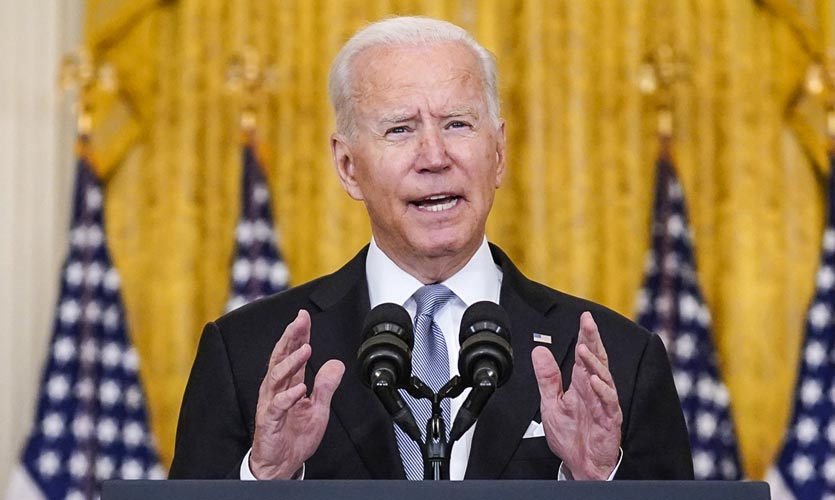In an announcement on February 22, US President Joe Biden announced sanctions against two of Russia’s largest banks, cutting them off from receiving loans from the West. The announcement of new sanctions was prompted by Russia’s decision to recognise two breakaway regions of Ukraine as independent and call on its armed forces to conduct a “peacekeeping operation” in the region. It’s part of the West’s effort to stop a Russian invasion of Ukraine. There are sanctions in place against the VTB Bank and Russia’s military banks.
The US has also imposed sanctions on Vnesheconombank (VEB). According to the US Treasury Department, the Russian VEB and Promsvyazbank Public Joint Stock Company (PSB), along with 42 of their subsidiaries, have been sanctioned as a result of the new limitations on sovereign debt. On the treasury’s list of blocked entities are five Russian commercial vessels, including oil tankers Linda and Pegas.
The US has also sanctioned five Russian elites and their families, including Aleksandr Bortnikov (and his son Denis), Sergei Kiriyenko (and his son Vladimir), and Promsvyazbank CEO Petr Fradkov. Their connections to the Kremlin directly benefit them and their relatives. A notice has been sent to other Russian elites and their family members that additional actions might be taken against them. Moreover, expanded sovereign debt prohibitions will stop US firms and individuals from participating in secondary markets for new debt issued by the Central Bank of the Russian Federation, the National Wealth Fund of the Russian Federation, and the Ministry of Finance of the Russian Federation. As a result of these prohibitions, the Russian government is expected to be unable to fund its priorities, leading to an increase in its future financing costs. It denies Russia access to key US markets and investors.
So far, the sanctions have targeted specific financial institutions and individuals, but they are not the most severe sanctions that the West is capable of imposing. Sanctions experts describe the announced measures as a middle ground that gives the US more flexibility. “If Russia goes further with this invasion, we stand prepared to go further with sanctions,” said Biden. In his speech, Biden warned that the conflict could increase energy prices but assured that the administration would be “closely monitoring energy supplies for any disruptions”.
In addition to the United States’ measures, Europe and the United Kingdom have also imposed sanctions on Russia, including asset freezes and travel bans against certain Russian oligarchs and politicians. Germany has halted the certification process for the Nord Stream 2 pipeline, which is a $11 billion Russian investment. As part of the sanctions a day earlier, the US targeted those who did business in the breakaway regions in eastern Ukraine and were moving toward Russia.
In the immediate aftermath, some of the United States’ allies seemed unsure what to call Russia’s actions. It was not the march toward Kiev that US officials had warned about but it was certainly a violation of international law and Ukraine’s sovereignty; an attempt by Russia to essentially redraw Ukraine’s borders.
In countries like Cuba, the United States has applied aggressive economic blockades, but they have not necessarily resulted in the policy or regime change they sought, while also squeezing the average citizen. Earlier, during Russia’s annexation of Crimea from Ukraine in 2014, the US president at the time, Barack Obama, restricted trade and business to and fro that region. In addition, Russian defence companies, six of the country’s largest banks, and the inner circle of Russian President Vladimir Putin were targeted.
Read more: Russia Recognises Breakaway Regions Of Ukraine, Moves In Troops For “Peacekeeping”
Repercussions So Far
As per S&P Global, oil prices rose on February 22 but remained tempered on the prospect of an Iranian nuclear breakthrough. After retreating from higher gains earlier in the day, NYMEX March WTI gained $1.28 per barrel to settle at $92.35 per barrel, and ICE April Brent was $1.45 higher at $96.84 per barrel. For refined products, NYMEX March RBOB rose 4.12 cents to settle at $2.7108 per gallon, while March ULSD rose 3.73 cents to $2.8188 per gallon.
According to US Energy Information Administration data, Russia was the third-largest oil supplier to the US in November, behind Canada and Mexico. The Ukraine crisis threatens to disrupt the supply. US refiners could backfill any disruption in the Russian crude by easing exports on US-Gulf Coast sour crudes such as Mars, according to Platts Analytics. Lower US imports of Russian oil feedstocks would have a greater impact, but Gulf Coast refiners could use Canadian or Latin American heavy grades at margin loss.
Russian Response
Reuters reported that Russian Foreign Minister Sergei Lavrov dismissed the threat of sanctions, and said, “We’re used to it. We know that sanctions will be imposed anyway, in any case. With or without reason.”
According to the Republic World, an international sanctions expert based in Helsinki, Maria Shagina, Putin is not threatened by Biden’s strategy of gradual sanctions escalation. According to her, the Biden administration should shift its red lines to imposing tough sanctions, as it would be too late after the full invasion of Ukraine.
Since the US and its allies have promised Russia “swift and severe costs” if Putin invades Ukraine, the diplomatic language matters. President Biden said on Tuesday that Russia is poised to launch a massive military campaign against Ukraine. The US, along with its allies, has decided not to send troops to the country. A state of emergency has been declared in Ukraine, lasting 30 days. In addition to defensive support to Kyiv and strengthening US presence on NATO’s eastern flank, which Biden said that the US would continue to do, the West is also relying on other foreign policy tools, among which are of course, sanctions.










